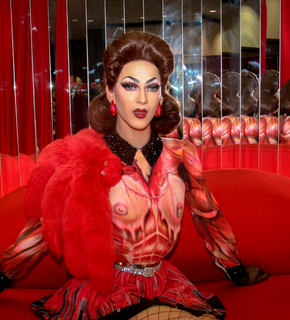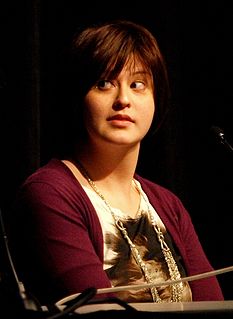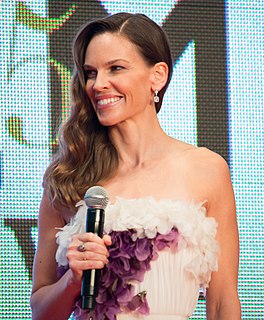A Quote by Violet Chachki
At things like DragWorld and Drag Con, you see young people come out in droves and be moved to tears, or hear their stories about how they found strength in what we do.
Related Quotes
I've gotten a lot of young gay kids come up to me and talk to me about how the little things I've said in the press has helped them come out to their parents, or just be open with who they are, and feeling invigorated by that. So that honestly means a lot to me to hear that the things that I say in the press, they do hear, and they see, and it helps them at least to start the conversation.
There are stories in the Bible about people telling other people how to do things. When you hear this young man say "we don't give up," that's something human beings who win will tell you every time. Breaks will happen. When they happen, you keep the same mind about what you're doing. It's about we the people getting on with our lives and doing it that way.
The psychological peer pressure that the left has employed - and deployed, actually - on young people has been overwhelmingly successful. It has created droves and droves of people that vote against what they know is right, vote against their own self-interest, in exchange for feeling good about themselves and also being immune from criticism.
When I play games, I'll make up little stories for just anything. It's almost the game of making up background stories for people you see on the street. You know what I mean? I wasn't exactly the popular kid in school growing up, so I found myself really observing people, and watching how they interact, and how they react to things.
I'm 64, but I act like I'm still 12. I go to schools. At colleges, they come out in droves, they almost scare me. I think it's just to see if I'm still alive. After I work them out - and it's not easy - I sit them down and we have a serious talk. Are they eating? Working on their body? I can say things parents won't say. No matter where I go, I talk to each one individually after I teach. They tell me things like, 'I'm starving, guys like girls thinner.' I give them concrete advice about self-image and self-worth.
I wanted to be a singer, of course, but there was something about the songwriting, then and now, that is the most important thing. It's how I express myself, how I express how I see things. When I see people struggling with emotions and feelings and don't know how to put it down, I'm able to do that. It's really like a therapy, and it's like a buddy and a friend. It's a way out of a lot of things.
I felt like it was something that didn't represent how I wanted to present myself. Now I'll see kids I come across on Twitter or Comic-Con, and they'll smile and I'll be like, "You have a crooked mouth like I have a crooked mouth!" We just sit there, and I talk about it with them and they feel better about themselves.
The script is like music to me. I approach it like it's a musical piece and I hear how it's supposed to sound when people say the words. There's rhythms and there's intonations and things, and so, when somebody comes in and hits the notes that I hear, I go okay. Or, they come close enough, and then I'll say "Well how about you try it like this?" and if they have a good ear and they can pick it up, then I think okay, they've got it.
I'm always interested in hearing how other people read and react to my songs. I hadn't thought of it in just that way. One of the things I love about doing things that are creative is that I feel like it's my right as an artist not to be affected by the reactions of those people that are going to hear my songs. But I also feel like it's the right of the people hearing them to have their own interpretations of what these songs mean. Sometimes people will see things that I don't see.
I stopped trying to chase the perfect place to be, and realized the perfect place is with your loved ones and your closest friends, around the dinner table, over a good meal, talking about the past year and the year to come and things that you want to change in your life. You hear their stories and talk about things you'd like to see happen in the world. That's what we do.

































